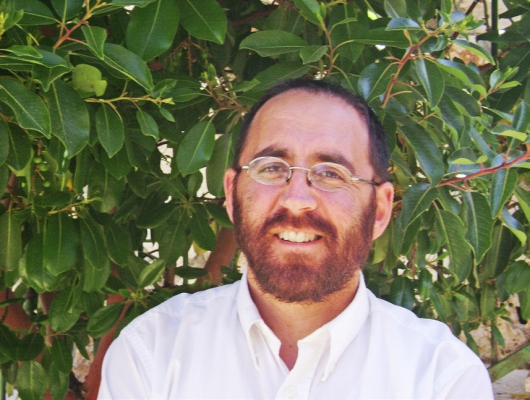Ecological Burial
A New/Old Ecological Burial Option in Israel
How and where will we all be buried? Uncomfortable questions to contemplate, but ones that we all face and that today include important personal and societal environmental, and financial considerations. In Israel, fortunately, the National Insurance Institute (NII, Bituach Leumi) pays burial expenses for everyone. This includes the burial plot, transport of the deceased to the cemetery, ritual cleansing of the body, shrouds and the burial itself. The NII makes payments directly to the burial societies (Chevra Kadisha) and to any other entity that is authorized to conduct burials.
But the current system has environmental and cost problems especially as our population continues to grow. Traditional burial options currently available in Israel consume large amounts of land. In densely developed parts of the country this has necessitated the use of multi-story, vertical cemeteries where the deceased are stacked in walls, above ground or in catacombs that many people find undignified and aesthetically unattractive. Environmental issues associated with current options include the extensive use of land and concrete. Traditional Jewish burials in Israel do, however, avoid the environmental issues resulting from other practices such as cremation, embalming, and use of wood and other materials for coffins.
Current traditional burial options in Israel are expensive. Between now and 2100 the cost of land, construction, tombstones, and maintenance is estimated to top NIS 270 billion including a land area roughly the size of the city of Petah Tikva.
The Land of Israel Burial (Kvurat Eretz Yisrael) is an alternative to traditional burial options currently available in Israel that, if instituted and widely used, will save enormous amounts of land, money, and physical resources - over 80% of the sums above.
The Land of Israel Burial's ecological method sounds new but is actually based on an ancient practice that involves temporary burial in the ground. Bodies are buried for a year until the bones can be gathered and placed in a special box known as an ossuary, which can then be placed in a family burial vault. This method was the main method of burial in Judah for about 1,500 years from the time of the monarchy. Extensive archeological remains include the entrance "doors" that were used to cover chambers during decomposition, and ossuaries. The Talmud and halakhic literature discuss these methods extensively, see for example Talmud Bavli, Moed Katan 8a.
The Land of Israel Burial Association, headed by Rabbi Rafi Ostroff of the Gush Etzion Religious Council and Chevra Kadisha, has been leading the initiative since 2015. The Association is working on many fronts towards getting approval for the method by the Ministry of Religious Services and associated agencies. The Association's areas of research include ways to speed up the decomposition process and sensitive architectural options. Much work and many resources are needed before the Land of Israel burial method can be incorporated by burial societies.
The Association's website https://kvurat-eretz-isr.org.il/ has a wealth of detail related to the initiative. The site is in Hebrew and includes information for joining the Association, and about ways interested people can get involved. Some resources are available in English including the Association's September 2022 initiative progress letter to supporters. The Association intends that Land of Israel Burial be voluntary by advanced directive only. It does not support opening old graves for reburial.
For more information contact Rabbi Rafi Ostroff at This email address is being protected from spambots. You need JavaScript enabled to view it..
Clive Graham made aliyah in 2021 and lives in Zichron Yaakov.









Comments 1
I applaud this really wonderful initiative! In our tiny, densely populated country we should stop allocating precious land for burial purposes. Especially as we are likely the only country in the world that "imports" human remains of non-citizens for burial here.
The Land of Israel Burial (Kvurat Eretz Yisrael) provides an excellent, very viable alternative to current practices and should be strongly encouraged!